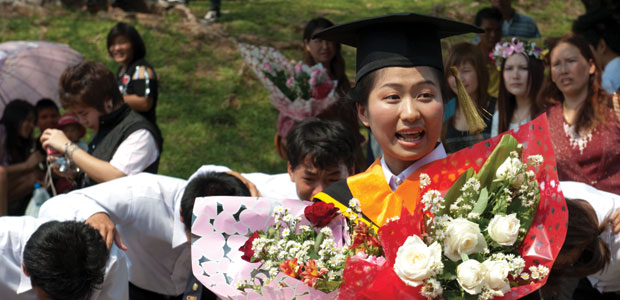
Source: Alamy
A new world-class university that integrates existing centres of excellence would boost Thailand’s development, says Kriengsak Chareonwongsak.
A university is an institution of knowledge and wisdom, that not only functions to develop people and to generate new knowledge, but also develops a country.
Developing nations with world-class universities have real potential to become developed countries. The US, Australia, developed nations in Europe and countries in Asia such as Japan, South Korea and Singapore all transformed into developed countries within a generation because they had world-class universities. Thailand, in its drive to become a leading economy, needs to establish world-class universities urgently. In the same way that the benefits of global universities extend throughout the higher education sector, creating a “spill-over effect”, a world-class university in Thailand would stimulate other institutions in the country to improve their educational management and this will increase the quality of higher education overall.
This is why I propose the creation of a new National University of Thailand, with a clear strategy to push it to become a world-class university. It will have three main characteristics.
First, NUT will be the centre of excellence in the academic fields that are the country’s strategic focus (for example, medicine, tourism and hospitality, agriculture and food). By integrating the existing centres of excellence in these strategic fields from various universities in Thailand and designating them as campuses of NUT, these faculties could still operate, teach and research using the existing sites and resources of their current institutions. In order to succeed, NUT will need to develop a structure and management system that is flexible, non-bureaucratic and independent.
Second, NUT must collaborate closely with the social and economic sectors in developing Thailand. For example, NUT should connect with entrepreneurs in the tourism or food sectors, allowing them to participate closely from the start in designing a curriculum, setting a research topic or developing a body of knowledge in the field. Examples include South Korea, Taiwan, Japan and China which have encouraged their universities to link closely with industry and business, believing that this will create a strong foundation for the country’s fast development.
Third, NUT must partner with world-class universities around the world that match NUT’s strategic focus. For example, the National University of Singapore cooperated with Harvard Kennedy School, which is ranked first throughout the world in the field of public policy and public administration. This partnership has helped NUS to become a top-ranked university.
NUT should develop sisterly relationships with world-class universities, organising joint teaching programmes or developing a curriculum together in order to set new standards in Thai educational management.
But there are some fundamental factors that would be essential for NUT’s success. Clear objectives for NUT would need to be set from the beginning. It should have a clear remit to get Thailand out of the middle-income trap by developing people, knowledge and excellent research in the country’s strategic sectors, and to be a role model of excellence for other universities. It must also have strong financial support from the government in the form of an endowment fund. In the long term, NUT should become self-reliant, but in its early stages, funding and budget subsidies will be needed. The governments of China, Japan, South Korea and Taiwan have been working to support their universities to become world-class institutions by providing strong financial backing.
NUT must also be underpinned by systematic intellectual property management. This will ensure and strengthen the process of innovation production in Thailand.
With a clear vision, the right ingredients and strong backing, an NUT could become Thailand’s world-class university, and could be one of the key factors in driving the country out of the middle-income trap.
Kriengsak Chareonwongsak
Senior fellow, Harvard University and president, Institute of Future Studies for Development in Thailand